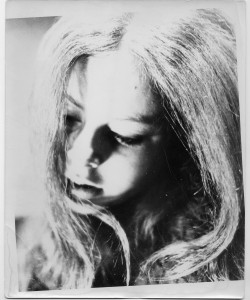
Lisa and I created Aftertalk around one fundamental belief; that writing to a deceased loved one can help you cope with grief. Our belief in this is rooted in personal experience; Lisa came to it after the death of her father; I discovered therapeutic writing to a deceased loved one quite by accident when my wife of twenty two years died.
Ten days after she passed away I sat in a hotel room in Tucson, Arizona late at night, a little drunk, and started writing a letter to her. I don’t know why. Words poured out of me, things I had wanted to say but hadn’t, and things I wished I had thought to say.
her. I don’t know why. Words poured out of me, things I had wanted to say but hadn’t, and things I wished I had thought to say.
When I returned to New York, I told my psychiatrist, the eminent and wonderful Antoinette Wysynski, M.D., whose practice was devoted to cancer victims and their survivors like me. She told me that therapeutic writing was a well-established grief processing technique and encouraged me to keep doing so. I did, a lot at first, then less frequently as I healed and found a new life with my wife Wendy and our two children.
When my father died, I took it up again to help me through the grief stages. Once again, I felt resolved and uplifted by the process.say while she was alive. Tears cascaded down my cheeks as I pounded my heart out on that keyboard. It was the most cathartic experience of my life, a major milestone in my grieving process.
In a recent article in Psychology Today, Dr. Adrian Furnham notes that “over the past few decades the therapeutic power of writing has been discovered.” Dr. Furnham goes on to say that “Writing is also often redemptive. And it helps because it nearly always involves some commitment to change.”
Lisa and I have been powerfully influenced by an article entitled “A systematic writing program as a tool in the grief process: part 1” by Norwegian scientists Bodil Furnes and Elin Dysvik. They say: “some central aspects of grief processing include being allowed to express the grief experience…Moreover, the grief process involves retaining and sustaining some ties to the person who has died and adjusting to the new life situation.”
Classic grief theory posited that the process was ‘successful’ when the mourner is freed of ties to the deceased. Frunes and Dysvik cite philosopher/scholar Thomas Attig who disputes this and maintains that positive ties to the deceased are a source of further life enrichment.
The Frunes an Dysvik studies focus on writing in a group situation and writing in a private journal. With AfterTalk.com, we took it in a different direction. Groups are great if you live in a metropolitan area where you can find one with people who don’t know you. It’s harder for the rest of us. Journals are terrific, but for mature people—those most likely to experience the death of a loved one—if you haven’t gotten the journaling habit by now, it’s hard to establish. The first tagline Lisa and I developed for AfterTalk.com was “Continue the Conversation,” because that is what we want people to do. We want you to write to your deceased loved one as if you were still conversing with them.
I’ll close for now with this quote by a phenomenal author on many topics including grief processing, and grieving, Barbara Brabec:
By journaling or writing letters to someone you’ve loved and lost, you can speak with abandon and dump all those feelings and emotions you don’t want others to know about. In the process you’re also apt to discover, as I have, not only closure, but a new path and a new plan for the rest of your life.
Be well. That’s what they wanted for you.
